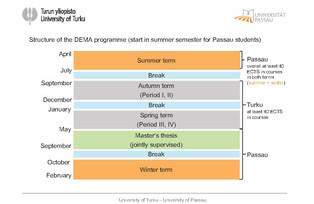For interested parties
Studying in the country of the happiest people *

| Quick Facts | Details |
|---|---|
| Programme | Digital Enterprise Management (DEMA) / Information Systems |
| Partner Universities | University of Passau, Germany and University of Turku, Finland |
| Degree awarded | Master of Science in Information Systems (University of Passau, Germany) and Master of Science (University of Turku, Finland) |
| Duration and credits | 4 semesters; 120 ECTS credits Start winter semester: in Passau: October - July; in Turku: September - May Start summer semester: in Passau: April - July; in Turku: September - May; in Passau: October - February (for Passau students) |
| Application deadline | June 15th (next winter semester for Passau students) January 15th (next winter semester for Turku students) January 15th (next summer semester for Passau students) |
| Starts in | October (winter semester) or in April (summer semester) |
| Language of instruction | English |
| Availability | A maximun of 10 students per cohort |
| Prerequisites | Admission to M.Sc. Information Systems or M.Sc. Business Administration (majoring in Information Systems) at the University of Passau English language skills at level B2 CEFR |
The University of Turku, Turku School of Economics and the University of Passau, School of Business, Economics and Information Systems coordinate their Master’s degree programmes in Information Systems in order to enable outstanding students to obtain a degree from each institution.
The programme focuses on topics in Digital Enterprise Management (DEMA), which is comprised by two modules:
- The Networked Business & Digital Ecosystems module focuses on economic and technical aspects of today’s networked and digital business environment. Students learn about digitally enabled organizations, and how they benefit from advanced data management and digitalized, networked business platforms to improve performance of networked business ecosystems. Moreover, they learn about economic and technical aspects of digital ecosystems as well as information and communication technologies.
- The IT Management module focuses on the design, delivery, and implementation of IT services, applications and infrastructure to align business needs and IT security requirements in networked organizations. Special attention is paid to the management of complexity of IT-assets and networked business by means of enterprise architecture management and governance. The students learn to define IS services to support business processes and knowledge sharing, and to manage multi-party implementation projects. Students also develop their ability to understand the significance of business networks for software industry as well as methods to address ethical and responsibility issues related global businesses.
The programme offers a great opportunity for excellent students to develop a unique and outstanding academic profile, as it combines the strengths of two distinguished Master’s programmes at the University of Turku (focusing on IT-Management) and the University of Passau (focusing on Networked Business & Digital Ecosystems), respectively.
The Digital Enterprise Management (DEMA) double-degree programme is designed for students who want to pursue an international career at the interface of IT, business and management. Graduates’ expertise will be key for translating strategic and operational needs into better information systems for enterprises and networked businesses. In short, graduates learn how to strategically apply IT to analyse design and support business change and transformation and thus enable a company to achieve its strategic, tactical, and operational goals. Upon completion of the DEMA programme the student is able to:
- understand and implement modern Internet-based technologies
- understand the information systems complex in private and public organizations
- understand the role of IS in networked organizations and in digitalization
- understand the opportunities of IS in small and medium enterprises, and their role in networked business
- implement information systems and changes of operations in organizations and business networks
- manage the information resources and make grounded and sound decisions improving profitability of business
- identify methods for the analysis and transformation of business processes to facilitate better and sustainable performance improvement of digitalization.
The double degree programme is offered for excellent students with a focus on Information Systems that are already enrolled in one of the following programmes:
- At the University of Passau for students in Masterstudiengang Wirtschaftsinformatik (M.Sc. lnformation Systems) or Masterstudiengang Business Administration (M.Sc. in Business Administration and majoring in lnformation Systems) programmes.
- At the University of Turku for students in Master of Science (majoring in lnformation Systems) and the Master of Science in Economics and Business Administration (majoring in lnformation Systems).
The students, who successfully completed the double degree study programme will receive a Master’s degree from each partner institution. The delivered diplomas include at least a transcript of records.
The degrees that double degree students will receive from the partner university, in addition to the degree of their home university, are, respectively:
- University of Passau:
Master of Science in Wirtschaftsinformatik (lnformation Systems) from the Faculty of Business Administration and Economics. - University of Turku:
Master of Science from the Turku School of Economics, Master's Degree Programme in Global IT Management, Digital Enterprise Management with a major in Information Systems Science.
The programme is organized such that students pursue the course programme in their first academic year (winter and summer semester: October – July) at the University of Passau with a focus on networked business and digital ecosystems. Subsequently, students pursue their second academic year (periods I-IV: September – May) at the University of Turku with a focus on IT-Management. Thus, German and Finnish students from the same cohort will pursue the programme together during the entire duration of the course programme. After completion of the course programme, students will write their master’s thesis at their respective home university.
For Passau students there is also the possibility to start the programme in a summer semester (April - July) at the University of Passau. Then students continue the programme at the University of Turku (periods I-IV: September - May). Afterwards students study another semester (October - February) at the University of Passau to complete the course programme by writing their master's thesis.
In total at least 40 ECTS in courses (NOT including seminar and master’s thesis) have to be taken at each partner university.
Students will have to fulfil individually the requirements of each university’s master’s programme (120 ECTS each) in order to be awarded the double degree. Generally, courses taken at either university will count towards both degree programmes. To ensure eligibility of courses and a coherent study programme, students have to devise a study plan, which must be approved by the Board of the double-degree programme.
Masters’ thesis and seminar will be jointly supervised by academic partners at both universities, but each must be written at the home university. Both, seminar and masters’ thesis need to be written in English.
Students will pay tuition and admission or registration fees to their home institution according to the local rules. Within the Erasmus+ programme students are exempt from paying fees at the partner university. This does not apply for students from Non-EU-countries, for details see: https://www.utu.fi/en/study-at-utu/scholarships-and-tuition-fees.
Frequently asked questions - FAQ
Why Finland?
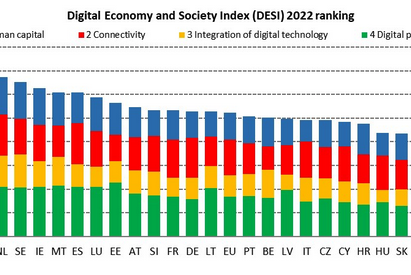
Finland is one of the most digitally advanced countries in the world. It is leading the Digital Economy & Society Index (2022) in the EU and, after Singapore, ranks second globally in the Network Readiness Index (2016) as a leading country in harnessing information technology.
Do I have to learn Finnish?
No, it is not necessary to learn Finnish. Many of the courses offered at the University of Turku are in English. But you can learn Finnish, if you like to. Several Finnish and Swedish courses are offered for free in Turku.
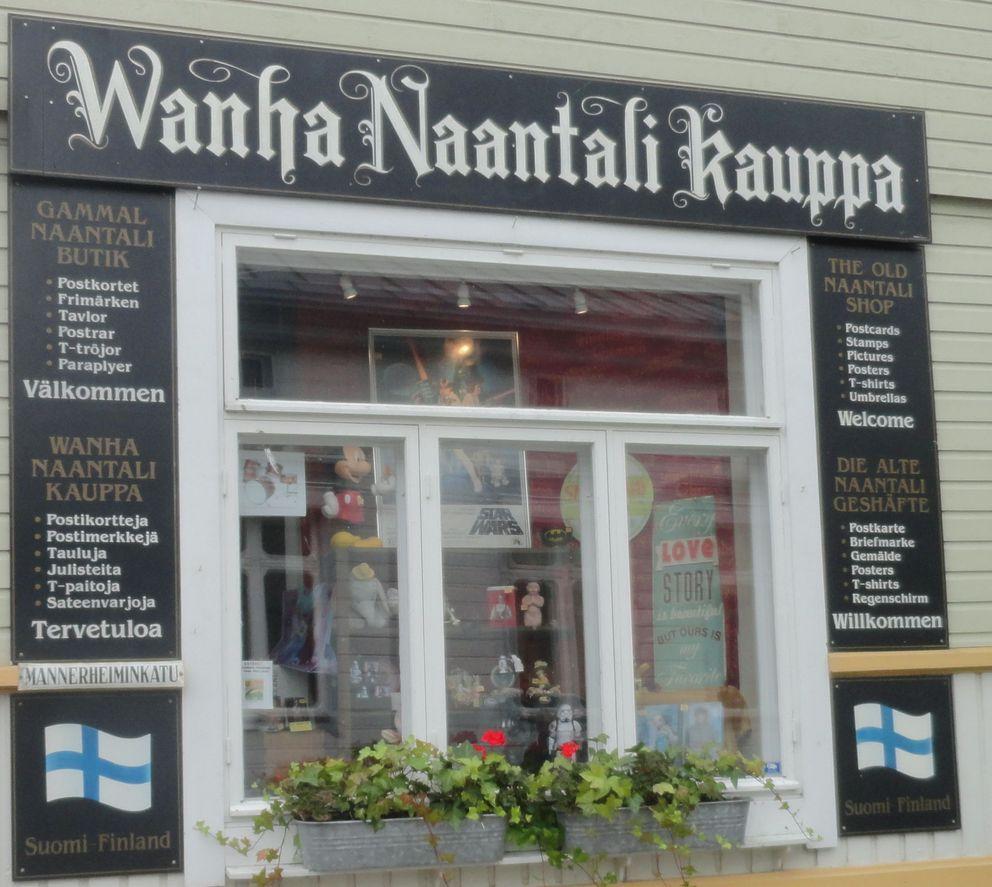
English language requirements and proof of English skills?
To participate in the DEMA programme you need skills in English language at level B2 (CEFR) or higher. You need to prove that you have adequate English skills by means of a recognised language certificate. We accept known language certificates such as FFP I/FFP II, UNIcert, etc., or your Abitur certificate, if the level is written on it. Or your language teacher fills in this Language Assessment Sheet for Exchange Student applicants of the University of Turku.
Why Germany?
German universities offer excellent teaching and research, ranking among the best in the world. You will earn an internationally renowned degree, giving you excellent prospects on the global labour market.
German universities provide outstanding academic programmes, while universities of applied sciences offer a range of attractive, practice-oriented options. Many study programmes combine theory and practice. This will greatly facilitate your career start.
In comparison with other countries, Germany is a safe country. In town or in the countryside, by day or by night, you can move around freely here. Germany offers economic and political stability, which makes it an ideal place for you to study. Discover the beauty and diversity Germany has to offer! When you take time off from your studies, there are 1001 ways of finding out more about your host country. For example, you can go to a museum, a cinema or a theatre, you can sit in a beer garden, you can go for a walk on a beach, you can swim in a lake, climb a mountain or visit an old castle. https://www.study-in.de/en/
Why Passau?
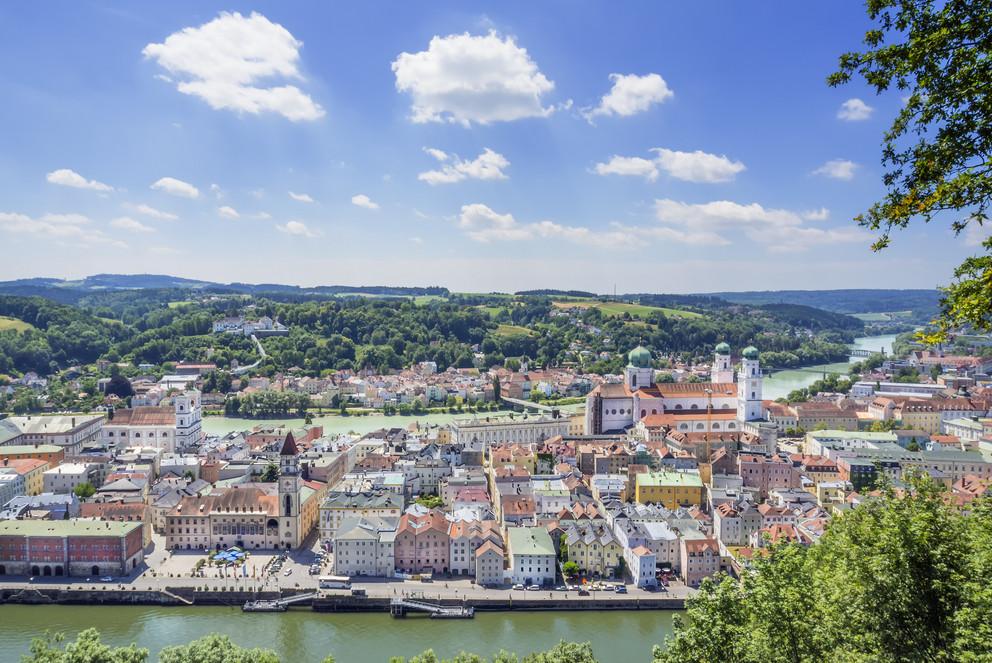
Widely considered one of the loveliest cities in Germany, Passau is situated in the southern foothills of the Bavarian Forest at the confluence of the rivers Danube, Inn and Ilz. Having been razed to the ground in the great fire of 1662, Passau was re-built according to designs by Italian master builders, which is where it gets its Mediterranean baroque flair from. It is partly for this reason that Passau is also known as the ‘Venice of Bavaria’. Atop a small hill in the Old Town sits St. Stephen’s Cathedral, the largest baroque cathedral north of the Alps. The Old Town is characterised by spacious squares, romantic promenades, narrow winding alleys adorned with small cafés, bars and beer gardens.
www.passau.de
Passau: https://www.youtube.com/watch?v=YWbVHsQhRPM&feature=youtu.be
One day in Passau: https://www.youtube.com/watch?v=aDiyVlE9BNc&feature=youtu.be
Why the university of Passau?
Owing to its excellent research, an outstanding study environment and a tight-knit international network of partners, the University of Passau was founded in 1978 and is a highly visible and highly respected academic and research institution in the heart of Europe. In the 2018 and 2019 World University Ranking, Passau ranked among the top 250 universities in the world, and is ranked 27thamong the universities aged 50 years or under. Internationally successful high-technology companies and a vibrant start-up scene, coupled with a rich culture and Lower Bavarian traditions make Passau a city with a high quality of life. Some 11,000 students hailing from 100 countries and more than 1,100 staff in primary employment in the academic units and academic support divisions are engaged in research, teaching and higher education support functions on our university campus, located just a stone’s throw from the Old Town of Passau. This campus is not only well-equipped in terms of its technical infrastructure but has also won numerous architecture prizes.
www.uni-passau.de/en/
University of Passau image film
More reasons for the University of Passau:
International flair and cosmopolitanism
Excellent conditions for study and top-quality education
International degree courses and double degrees
An unparalleled range of language courses
Strong business links
A beautiful campus with a lively student scene
A typically Bavarian flair and a great place to live
Do I have to learn German?
No, it is not necessary to learn German. Many of the courses offered at the University of Passau are in English and English is widely spoken in the general population. But you can learn German, if you like to. The Language Centre offers enrolled international students German language courses during the semester.
http://www.sprachenzentrum.uni-passau.de/en/language-courses/german/
English language requirements and proof of English skills?
To participate in the DEMA programme you need skills in English language at level B2 (CEFR) or higher. You need to prove that you have adequate English skills by means of a recognised language certificate. We accept known language certificates such as FFP I/FFP II, UNIcert, etc., or your Ylioppilastutkintocertificate, if the level is written on it.
Programme coordinator
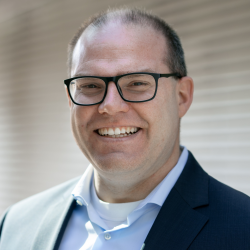
Prof. Dr. Jan Krämer
Room HK12 218
Phone: +49(0)851/509-2580
Fax: +49(0)851/509-2582
Jan.Kraemer@uni-passau.de
Consultation hours: Wednesdays from 2 to 3 p.m. by prior arrangement via the secretary's office.



